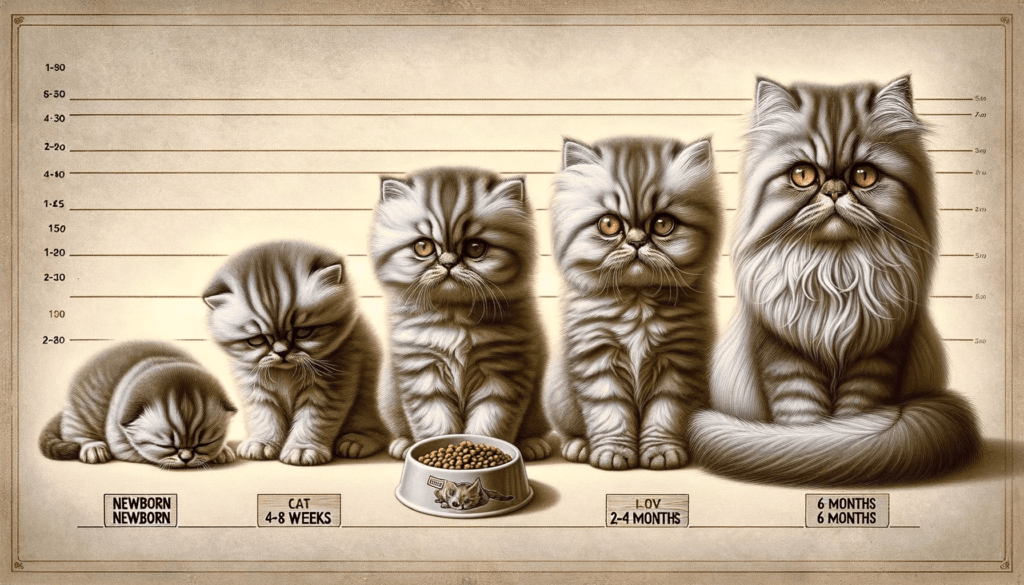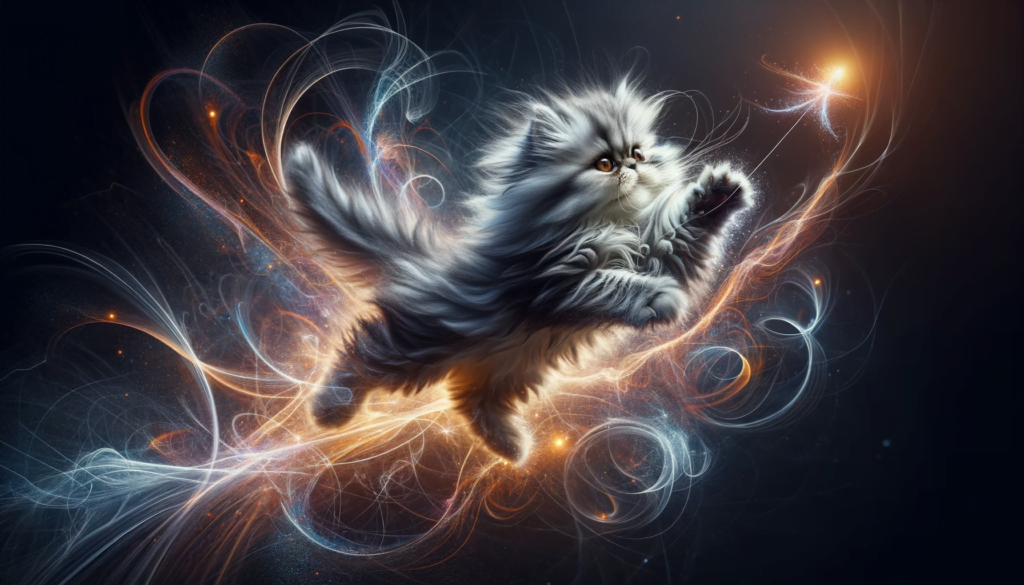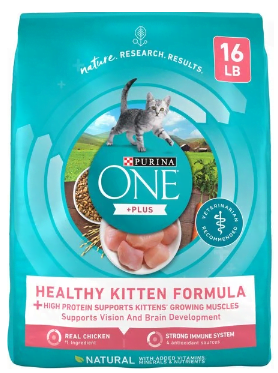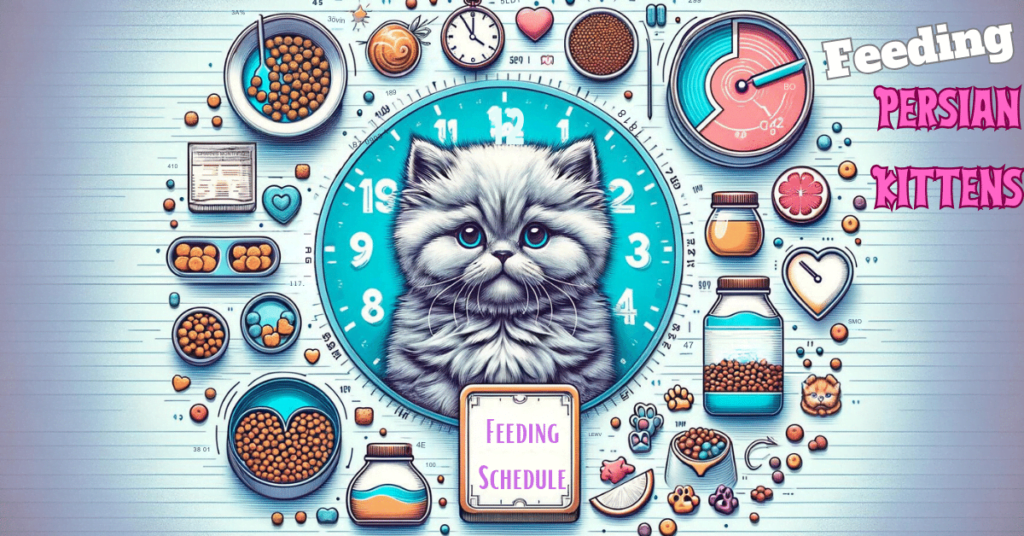This post contains affiliate links and I will be compensated if you make a purchase after clicking on my links.
Introduction
The journey of a Persian kitten from fluff to feline royalty is fueled by the diet it receives during its formative months. Persian Kitten Diet isn’t just about satisfying the appetites of these little furballs, but it’s the cornerstone for a lifetime of health and vitality.
As they prance into our lives with their cute antics, ensuring they receive the right blend of nutrients is akin to setting a solid foundation for a skyscraper.
With an arsenal of Persian Kitten diet choices, from kibble fortified with essential nutrients to home-cooked meals, Persian cat enthusiasts have the palette to paint a healthy future for their kittens.
This article will delve into the dietary needs of Persian kittens, highlighting the quintessential nutrients vital for their growth and development, ensuring they grow up to be the regal creatures they are destined to be.
Key Dietary Requirements for Persian Kittens
When on a quest for the perfect cat food, prioritize options that list chicken, turkey, or fish as high-quality protein sources while steering clear of excessive fillers or by-products. The feeding requirements may vary with their development stage, especially if you’ve rescued a motherless Persian kitten.
Biological Needs of Persian Kittens
Rapid Growth Phase

The journey of Persian kittens from newborns to young adult cats is a whirlwind of growth and change, much like a startup evolving into a tech giant.
In their first few weeks, they transition from being utterly defenseless and blind, relying primarily on their budding sense of smell to find their mother for sustenance, to gradually opening their eyes to the world around them.
They conserve energy by sleeping around 90% of their time, gaining a modest 10g to 30g each day as their systems gear up for the upcoming adventures.
As they march into the 4-8 week bracket, their interactions multiply, not just with their litter-mates but with their environment. They begin to exhibit the feline version of sprinting, pouncing, and stalking, marking the beta testing phase of their physical capabilities. Now, their sight is fully mature, providing them with the visual data needed to navigate their surroundings. It’s a time of exploration, making “kitten-proofing” the environment a prudent move to ensure their playful antics don’t lead them into danger.
Moving on to the 2-4 month milestone, our kittens learn and adapt, their behavior now is significantly molded by their interactions with litter mates, other pets, and humans, setting the foundation for their adult demeanor.
By the 6-month mark, they start mirroring the grace and appearance of adult cats, yet their nutritional needs remain unique to support the ongoing growth phase that lasts up to 12 months.
It’s recommended to continue serving specially tailored kitten food until they reach their first birthday, post which they can transition to adult cat food.
Protein: The Muscle Architect

Protein is no less than a superstar in a Persian kitten’s dietary lineup. It’s like the quintessential code that structures their growing bodies, particularly the muscles.
High-quality protein provides the essential amino acids necessary for muscle development and overall growth. As our little fur buddies leap, pounce, and prance around, it’s the protein in their diet that fuels these playful antics and helps them grow strong and agile.
The Skeletal Duo: Calcium and Phosphorus
In the context of Persian kitten diet, when it comes to laying a robust framework for bones and teeth, Calcium and Phosphorus are the twin pillars. These minerals are crucial for the skeletal development of Persian kittens, ensuring they have the bone strength to carry their royal fluffiness with grace. A balanced ratio of calcium to phosphorus in their diet is like having the perfect blueprint for a sturdy, majestic palace.
Energy: The Playful Dynamo
Boundless Playfulness

The spirited playfulness of Persian kittens isn’t just adorable; it’s a testament to their high energy needs. As they explore their little kingdoms, the energy expended in their daily frolics needs to be replenished adequately for sustained growth and vivacity.
Fats: The Essential Fuel

Fats are like the premium fuel for these energetic explorations. They are a vital energy source that supports their active lifestyle while also aiding in the absorption of fat-soluble vitamins.
A diet rich in Omega-3 and Omega-6 fatty acids helps maintain a healthy, shiny coat and reduces the risk of skin irritations. These essential fatty acids are like the conditioner to their fur, keeping it lush and beautiful.
Immune System: The Invisible Shield
Vitamins and Minerals
A variety of vitamins and minerals safeguard Persian kittens against a myriad of health adversities. They fortify the immune system, making it robust and ready to fend off illnesses. Persian kittens need vitamins A and E for skin and coat nourishment. These vitamins help protect their skin, ensuring it remains healthy to support their magnificent coat.

Antioxidants: The Cellular Protectors
Antioxidants wage a silent war against harmful free radicals, promoting overall health and longevity. Incorporating antioxidants in their diet is akin to providing an extra layer of armor, ensuring they grow into healthy, majestic felines.
Digestive Health: The Delicate Gut
Persian kittens are known for their sensitive digestive systems. It’s not uncommon for them to experience digestive upset, making dietary considerations crucial. Alongside these considerations, it’s essential to be aware of potential allergies. Some allergies can manifest as digestive issues, emphasizing the importance of understanding and monitoring for signs of Persian kitten allergies.
Fiber and Probiotics
The importance of fiber and probiotics in supporting digestive health can’t be overstated. Fiber aids in smooth digestion while probiotics help maintain a balanced gut flora, ensuring their digestive system runs smoothly, much like a well-coded software operates seamlessly.
Nurturing Respiratory Health in Brachycephalic Persian Kittens
Brachycephalic breeds like Persian kittens often face respiratory challenges due to their flat faces and shortened nasal passages. The right blend of nutrients can play a pivotal role in supporting their respiratory function and overall comfort.
Protein, as previously discussed, continues to be a stalwart ally, even when it comes to respiratory health. Additionally, Vitamins A and E step into the spotlight for preventing oxidative damage and supporting respiratory wellness. The role of Omega fatty acids extends beyond just skin and coat health, as they are also known to improve respiratory function.
Moreover, a trio of minerals – sodium, potassium, and chlorine, come into play to help maintain adequate acidity levels and support metabolic processes, which in turn, can aid in respiratory function.
While the right nutrition forms the cornerstone of respiratory health, other lifestyle factors also hold significant sway. Steering clear of overfeeding to prevent obesity, which can exacerbate respiratory symptoms, is crucial.
Here’s where a blend of tech meets feline wellness: introducing some interactive gadgets can encourage your Persian to move and play, curbing the risk of obesity.
The same goes for controlling exercise levels, especially in hot or humid conditions. Keeping your Persian kitten in an air-conditioned area during the warmer months can be a simple yet effective measure to manage mild or intermittent respiratory symptoms.
In cases where a Persian kitten has pronounced breathing difficulty or requires surgery to correct airway obstruction, breeding is discouraged to prevent passing on these traits.
Decoding the Persian Kitten Diet
Supporting the burgeoning growth and lively spirit of Persian kittens calls for a diet that’s both nutritious and appealing. Whether you gravitate towards commercial diets or fancy the homemade route, hitting the nutritional bullseye is akin to having the right set of tools in a tech kit – utterly indispensable.
Commercial Diets: Your Plug-and-Play Dietary Solution
Specialized kitten formulas are concocted with the distinct nutritional needs of Persian kittens in mind. They are specially designed to provide the essential nutrients found in mother cats’ milk to support the growth and development of kittens.
Reputable brands often roll out formulations tailored to cater to the aristocratic palate and health requisites of this regal breed. High-quality protein sources like chicken, turkey, or fish should headline the list, trailed by a medley of essential vitamins and minerals. Swerve past fillers or by-products, the junk files in the realm of cat nourishment.
For example Purina One is a great option, they crafted their kitten formula with DHA, a cherished nutrient abundantly found in mother’s milk. Coupled with a quartet of antioxidant sources, that acts as the invisible shield bolstering her immune system, ready to tackle the adventures that come her way.

Homemade Diets: The DIY of Feline Dietary Planning
Considering the DIY route for Persian kitten diet planning?
A rendezvous with veterinarians for personalized diet plans is your smart kickoff. They can dish out insights on the right blend of protein, fats, and other nutrients, orchestrating a balanced and wholesome diet for your Persian darling.
Yet, homemade diets come encased with their set of caveats. It’s pivotal to ensure the meal plan is all-encompassing to sidestep any nutritional voids, ensuring the diet houses all the essential nutrients in the right quotas is crucial.
Despite the personalized touch of homemade meals, we tilt towards specialized formulas for the daily diet due to the hassle-free, balanced nutrition they offer. However, an occasional homemade meal can act as a boredom buster, adding a sprinkle of variety to your Persian kitten’s mealtime.
Conclusion: Monitoring and Adjusting the Diet
The fast-paced development, highlighted earlier, calls for a change in dietary requisites. Our Persian Kitten Calculator is a handy tool to stay updated with the caloric needs of your kitten as it grows.
The activity level, growth rate, and individual tolerance of your kitten are pivotal factors that necessitate diet adjustments. An active kitten might need a calorie-rich diet, while a laid-back one might fare well with a lower-calorie plan. Similarly, the growth rate can indicate if the nutritional plan needs ramping up or dialing down.
Tailoring the diet to echo the unique rhythm of your kitten’s life ensures a smooth transition through the different phases of growth, embodying the essence of a well-planned Persian kitten diet. It’s about fostering a vibrant, playful, and thriving life for your Persian companion, ensuring they mature into healthy adults with a royal bearing.


